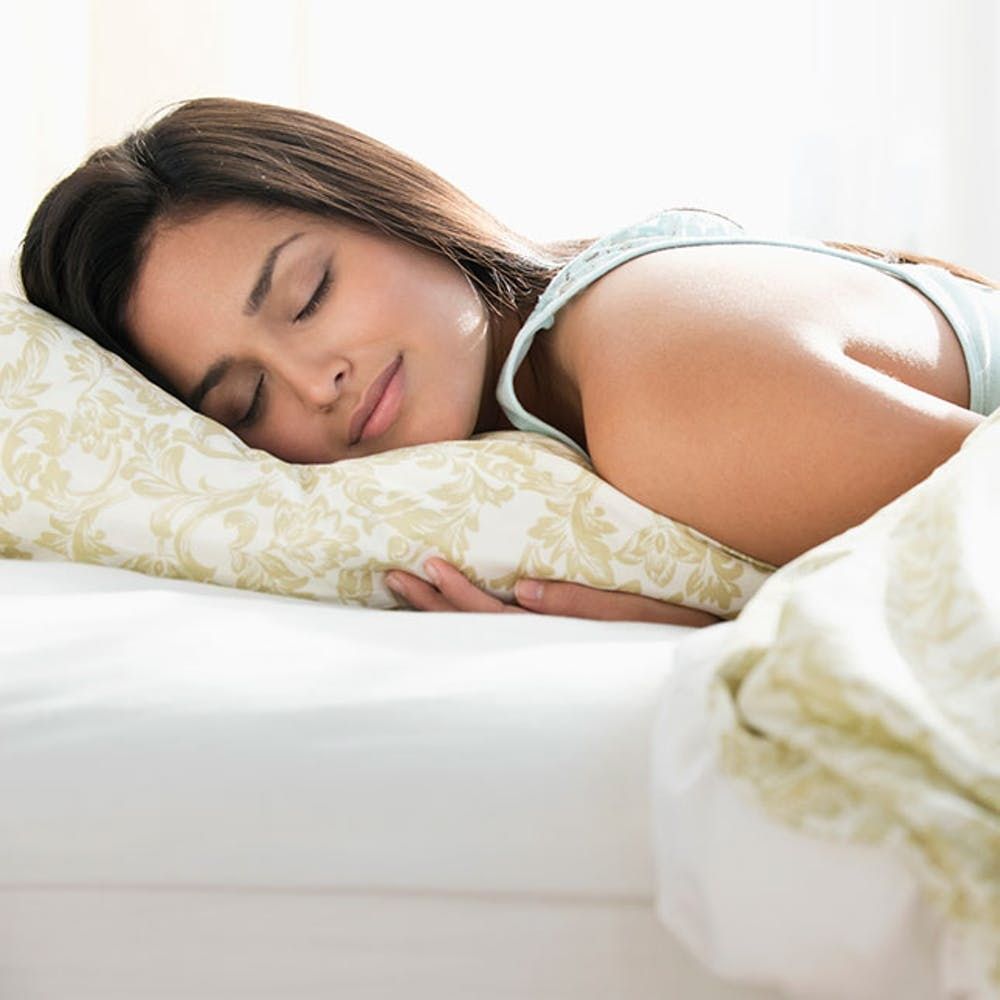Do you suffer from insomnia, and toss and turn for hours hoping to reach dreamland? You’re not alone, because insomnia affects 30 percent of all adults. If you’re part of this group and desperate to get more sleep, then you may want to take the advice from researchers in a recent study. They found that wearing amber-tinted glasses at night could help you catch more zzz’s.

How Digital Addictions Affect Sleep
Admit it: You probably waste time on your phone or tablet right before going to bed. Maybe you’re catching up on emails and scrolling through Facebook. Or you just need to get through one more episode of Netflix. But your smartphone and other digital devices can emit blue light that may interfere with your ability to fall asleep and can lead to insomnia.
Blue light can affect melatonin levels in your body, so you’re more alert and stay awake longer. Although the general recommendation is to put away your devices before going to bed, an addiction to smartphones can make it hard to stop using them. Fortunately, researchers may have found a simple solution.
A recent study, published in the Journal of Psychiatric Research, focused on a group of adults who had insomnia. Half wore amber-tinted glasses two hours before bedtime, and the other half wore the placebo clear lenses for the same amount of time. Researchers found that the amber lenses blocked the blue light coming from electronic devices, so these participants fell asleep faster and had fewer insomnia symptoms.
However, blue light is only part of the issue, according to Dr. Samuel Malloy, medical director at Dr Felix, an online doctor and pharmacy service in the UK. “The light itself appears to have an effect on sleep disruption, but it’s not the only contributor to problems caused by technology. Using tech devices in bed, especially just before you go to sleep, can cause various psychological changes. Over time, when tech is used, the bedroom space can become associated with being active and awake. This is the opposite of what you want for a place you rest in,” he says.
Your phone can also disrupt sleep in other ways. Receiving a new text message or a like on social media actually causes dopamine to be released by the brain, explains Malloy. Dopamine is a feel-good chemical made by your brain to reward the body. Over time, this can have an addictive quality, which can cause people to constantly check their phone. The desire to check for messages can subtly excite people and increase their awareness, delaying dreamland even more.
Study Limitations
One of the main limitations of the study is that amber-tinted glasses may help solve the blue light problem, but insomnia rarely has a single cause. Some people suffer from it because they have thoughts racing through their mind as they’re trying to settle down to sleep. Others have pain or chronic health problems that keep them awake.
“It’s really good to see a study engage with the subject. But there are some issues with the scalability of the research. Only 14 participants were used. This is a low number,” Malloy explains.
The researchers included people who were 34 to 57 years old. But Malloy points out that insomnia is a condition that affects a wide variety of people, so this age group was too limited.
“Younger people, such as those who are 14 to 30 years old, may spend more time on their phones throughout the day and in the evening, than the demographic which was assessed. This could be an important difference, which means that the findings of this research don’t necessarily apply to the wider population, including younger people,” he adds.
Should You Try Amber-Tinted Glasses?
The study’s researchers share that amber-tinted glasses are a safe and cheap way to block blue light emitted from digital devices at night. However, if you need prescription glasses, then the cost may be higher. You can’t hurt your eyes by using amber-tinted lenses, so it’s worth trying this tip to finally get some shuteye.
Share your favorite sleep tips with us on Twitter @BritandCo.
(Photo via Getty)



